Whether the guarantees of activity apply to all those who have a certificate of advocate - the position of the Supreme Court
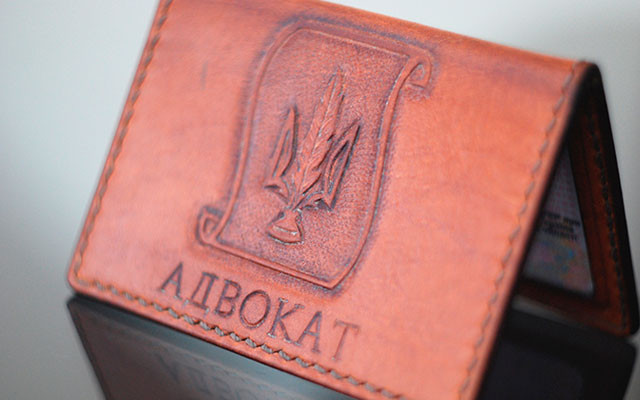
A person whose right to practice law has been terminated or suspended in accordance with the Law «On the Bar and Practice of Law» is not subject to the provisions of the Criminal Procedure Code on the special procedure for criminal proceedings.
This conclusion was reached by the First Judicial Chamber of the Criminal Court of Cassation of the Supreme Court in case No. 199/732/19 (resolution of 23.07.2024).
The court acquitted the judge's assistant, who was accused of influence peddling, on the grounds that the defendant in the case (who had the status of a lawyer but suspended his license) did not acquire the status of a suspect because he was notified of suspicion by an improper prosecutor. As a reminder, according to Article 481 of the CPC, a written notice of suspicion to an attorney is made only by the Prosecutor General, his deputy, or the head of the regional prosecutor's office.
On this basis, the court of first instance declared all the evidence provided by the prosecution inadmissible. The Court of Appeal upheld the acquittal.
However, the prosecutor believed that the courts had come to unreasonable conclusions, in particular with regard to the prosecutor's lack of authority to serve a notice of suspicion.
The Supreme Court examined whether the guarantees provided for in Article 23 of the Law apply to all persons who have received a certificate of an advocate.
The high judges noted that the mere mention of «activity» indicates that these guarantees are functional in nature, i.e., they are not a personal privilege of everyone who has received a certificate of the right to practice law, but are intended to ensure the rights of those whom the lawyer represents and his ability to carry out such activities unhindered and effectively.
In addition, the Law on the Bar and Practice of Law clearly distinguishes an advocate from a person who has suspended or terminated the practice of law.
And while the guarantee of preservation of the attorney-client privilege or immunity from prosecution for actions related to the practice of law continues to apply to persons who have suspended or terminated their practice, other guarantees are intended to ensure the practice of law, which a person who has suspended such activity is not entitled to carry out (Article 31(5) of the Law).
Thus, the SCC concludes, the legislation provides for functional guarantees for the advocate, which are designed to ensure both the rights of the persons he or she represents and the ability to practice law unhindered and effectively.
Upon entering the public service or engaging in other activities that are incompatible with the practice of law, a person is obliged to stop practicing law and cannot rely on the preservation of the guarantees inherent in the practice of law, since he or she agrees to obey completely different rules that are incompatible with the practice of law in many aspects. And it is precisely to prevent a conflict of liability that the suspension of the right to practice law is envisaged.
Based on these considerations, the Criminal Court of Cassation concluded that a person whose right to practice law has been suspended or terminated is not subject to the provisions of Chapter 37 (Criminal proceedings against a certain category of persons) of the CPC.
Since the decisions of the courts of previous instances on the inadmissibility of evidence were based on an incorrect interpretation of the provisions of Article 481 of the CPC in conjunction with the provisions of the Law, the court of first instance committed significant violations of the requirements of the criminal procedure law when assessing the admissibility of evidence, which the court of appeal left unaddressed. Therefore, the appealed decisions were canceled.
Popular news
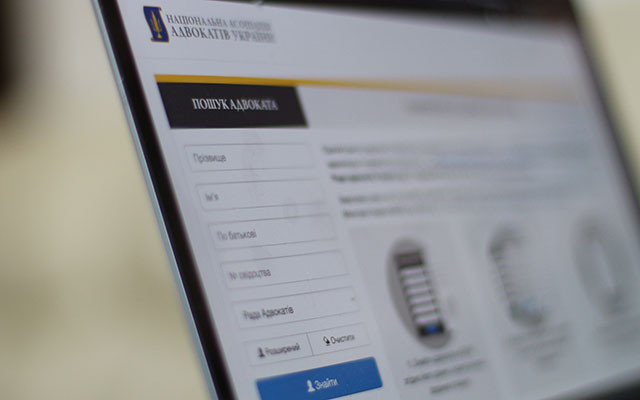
URAU
Access to advocate contacts in URAU has been restored
The Bar Council of Ukraine has opened up public access to data from the Unified Register of Advocates of Ukraine, which was closed at the start of the full-scale invasion in 2022. The decision was made at a meeting on December 12–13.
Self-government
Members of the QDCB are not required to submit declarations - BCU
Bar Council of Ukraine examined the legal status of members of bar self-government bodies and found that they are not required to submit declarations of persons authorized to perform functions of state or local self-government.
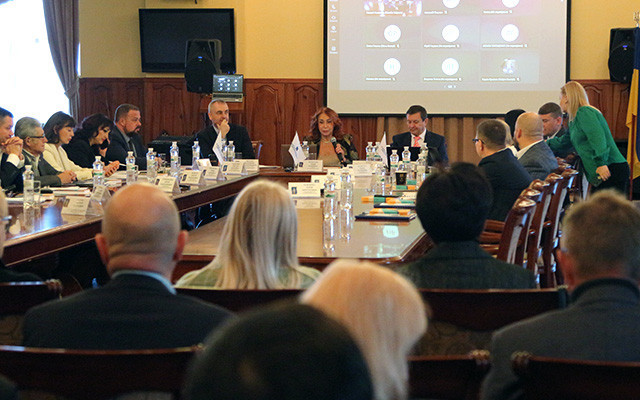
Self-government
BCU has identified 12 areas for implementing the Roadmap for advocacy
During its meeting on December 12, the Bar Council of Ukraine considered the Roadmap on the Rule of Law, approved by Order of the Cabinet of Ministers of Ukraine No. 475-r dated May 14, 2025. The document provides for the development and adoption of a draft law on improving the legal regulation of advocacy by the fourth quarter of 2026.
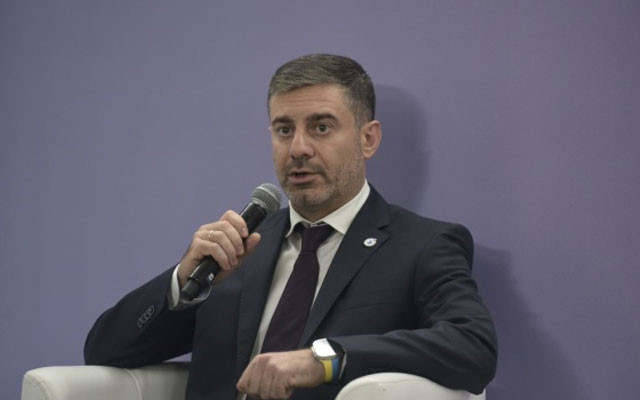
Guarantees of the practice of law
The Ombudsman acknowledged the problem of violation of the human right to legal aid in the TCC
The Verkhovna Rada Commissioner for human rights Dmytro Lubinets confirmed the existence of a problem with ensuring the constitutional right to professional legal assistance in territorial recruitment and social support centers.
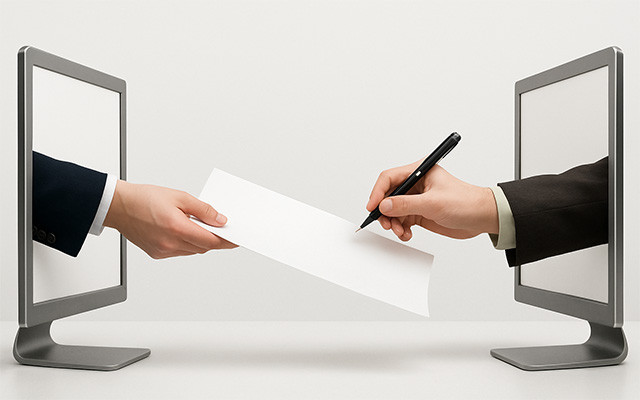
Guarantees of the practice of law
The agreement on the provision of legal assistance is not public – BCU
Bar Council of Ukraine in its decision No. 111 dated October 18, 2025, responded to questions regarding the possibility of concluding legal assistance agreements by accepting a public offer, using an electronic form of the agreement, and posting information about legal assistance on websites.
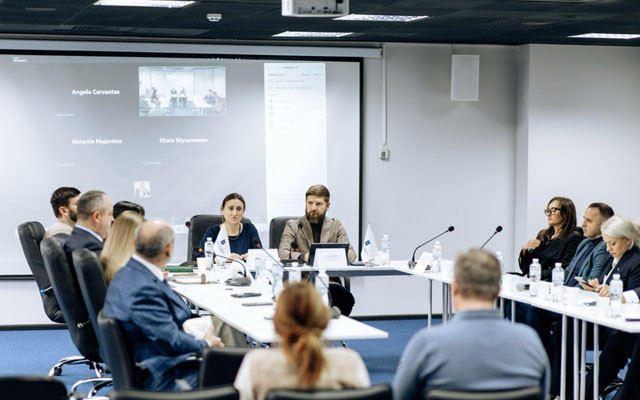
Discussion
Why preventive measures have turned into preventive punishment in Ukraine: round table discussion
The European approach, enshrined in the CPC, provides for detention as an exceptional preventive measure: courts must prove the impossibility of milder alternatives and carefully assess the risks. In practice, however, it is increasingly being applied almost automatically, eroding standards of freedom.
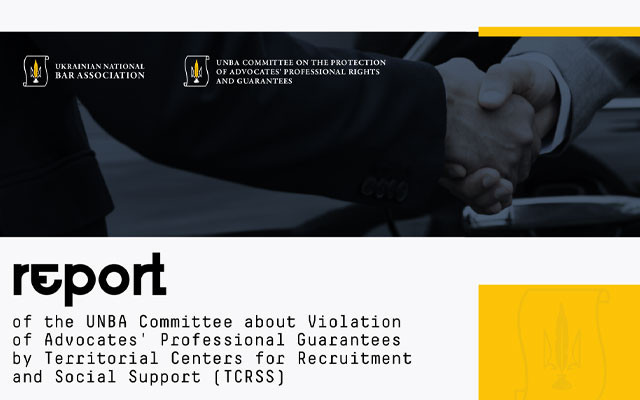
Guarantees of the practice of law
The UNBA presented a report on violations of advocates' rights in the TCC
The Committee for the protection of advocate's rights and guarantees of legal practice of the UNBA has prepared a consolidated report on violations of advocate's professional rights and guarantees of legal practice by territorial recruitment and social support centers for the period from 2022 to the first half of 2025.
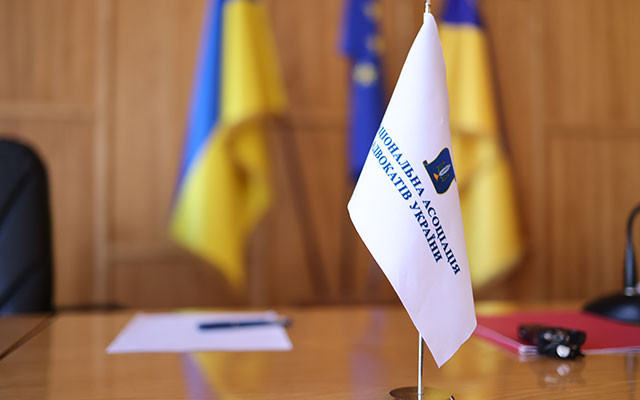
Self-government
Statement by the UNBA Committee regarding manipulative journalistic material
Statement by the UNBA Committee on information policy and interaction with the media regarding manipulative journalistic material aimed at discrediting the advocacy institution.
Publications

Censor.net Protecting advocates – protecting justice: addressing concerns about the new law

Ihor Kolesnykov A BRIEF SUMMARY REGARDING THE APPLICATION OF THE ORDER ON EXTENDED CONFISCATION IN LATVIA REGARDING FINANCIAL ASSETS OF…

Valentyn Gvozdiy WORKING IN A WAR ZONE

Lydia Izovitova Formula of perfection

Sergiy Vylkov Our judicial system is so built that courts do not trust advocates

Iryna Vasylyk Advocacy in the proclamation of Independence of Ukraine

Oleksandr DULSKY When we cross the border of the Supreme Anti-Corruption Court, we get into another department of the National Anti-Corruption…

Vadym Krasnyk The UNBA will work, and all obstacles and restrictions are only temporary inconveniences
